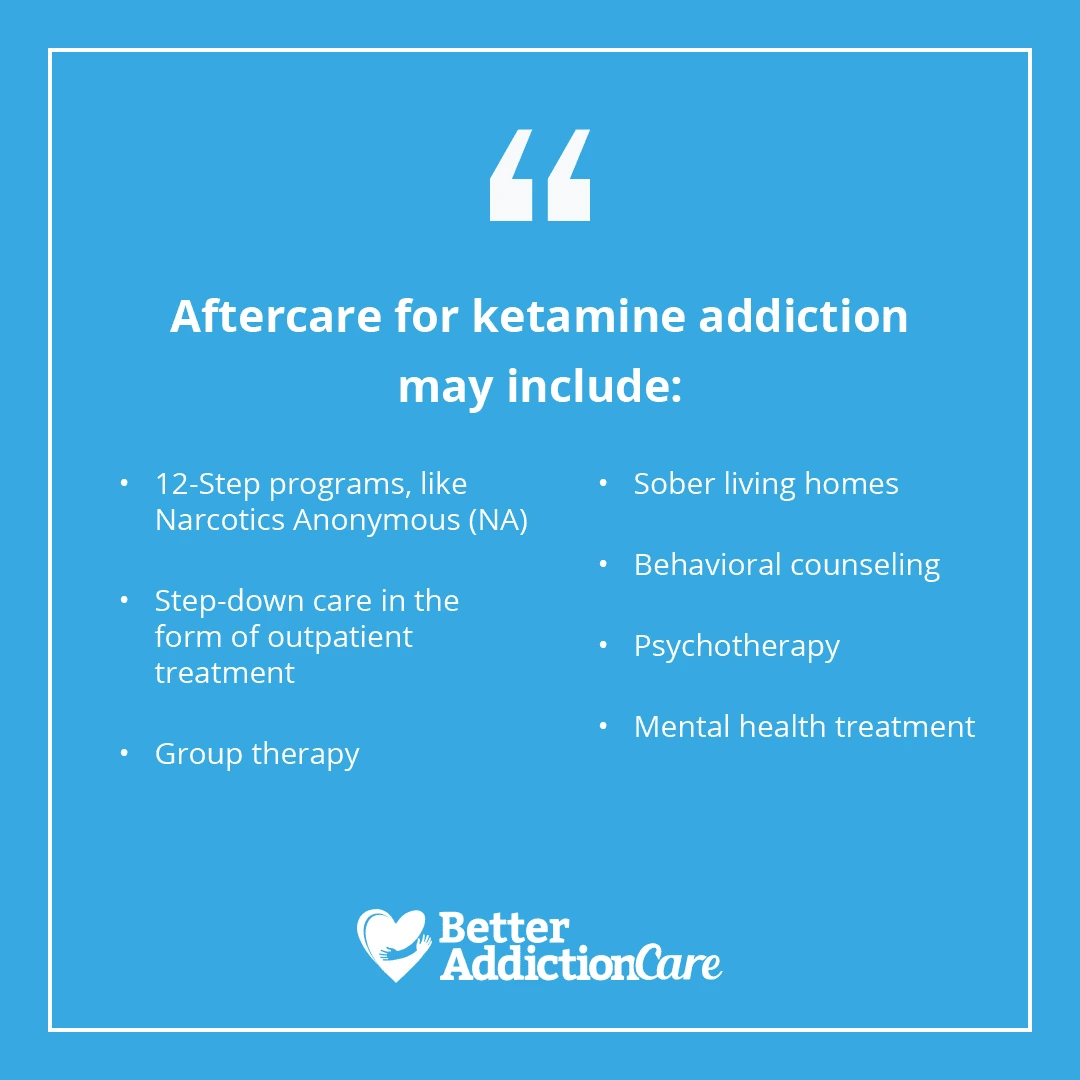Ketamine Addiction
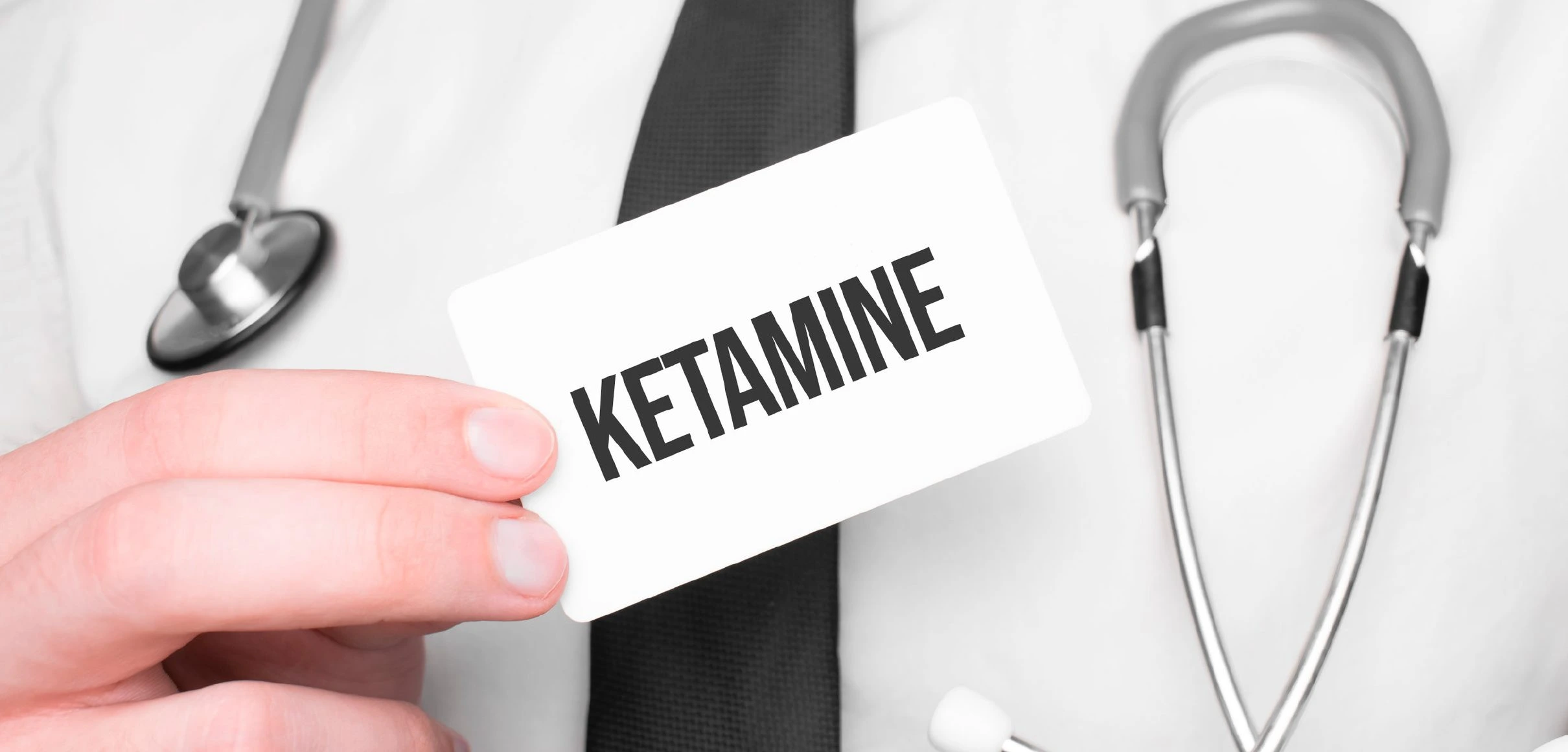
Ketamine is a medication used for general anesthesia in humans and animals. The Food and Drug Administration (FDA) approved this dissociative anesthetic for use in hospitals and clinics. Some clinics may provide ketamine infusion therapy for chronic pain or as a treatment for depression. However, people misuse this Schedule III medication because of its hallucinogenic and relaxing effects. Chronic ketamine abuse or misuse can lead to ketamine addiction. It’s important to know the signs and symptoms of ketamine addiction so you can seek treatment for yourself or someone you care about.
Signs and Symptoms of Ketamine Addiction
Ketamine abuse causes several noticeable side effects. If you are worried someone you love is addicted to ketamine, you may recognize these signs of ketamine use or intoxication:
- Nausea and vomiting
- Blurry vision
- Time distortion (speeding up or slowing down)
- Track marks (if injected)
- Rapid eye movement
- Muscle rigidity
- Incoordination
- Insomnia
- Slurred speech
- Sleep disturbances
- Mood swings (often violent)
- Disorientation
- Seizures
- Dizziness
- Sedation
- Hallucinations
- Agitation
- Anxiety
- Dissociation
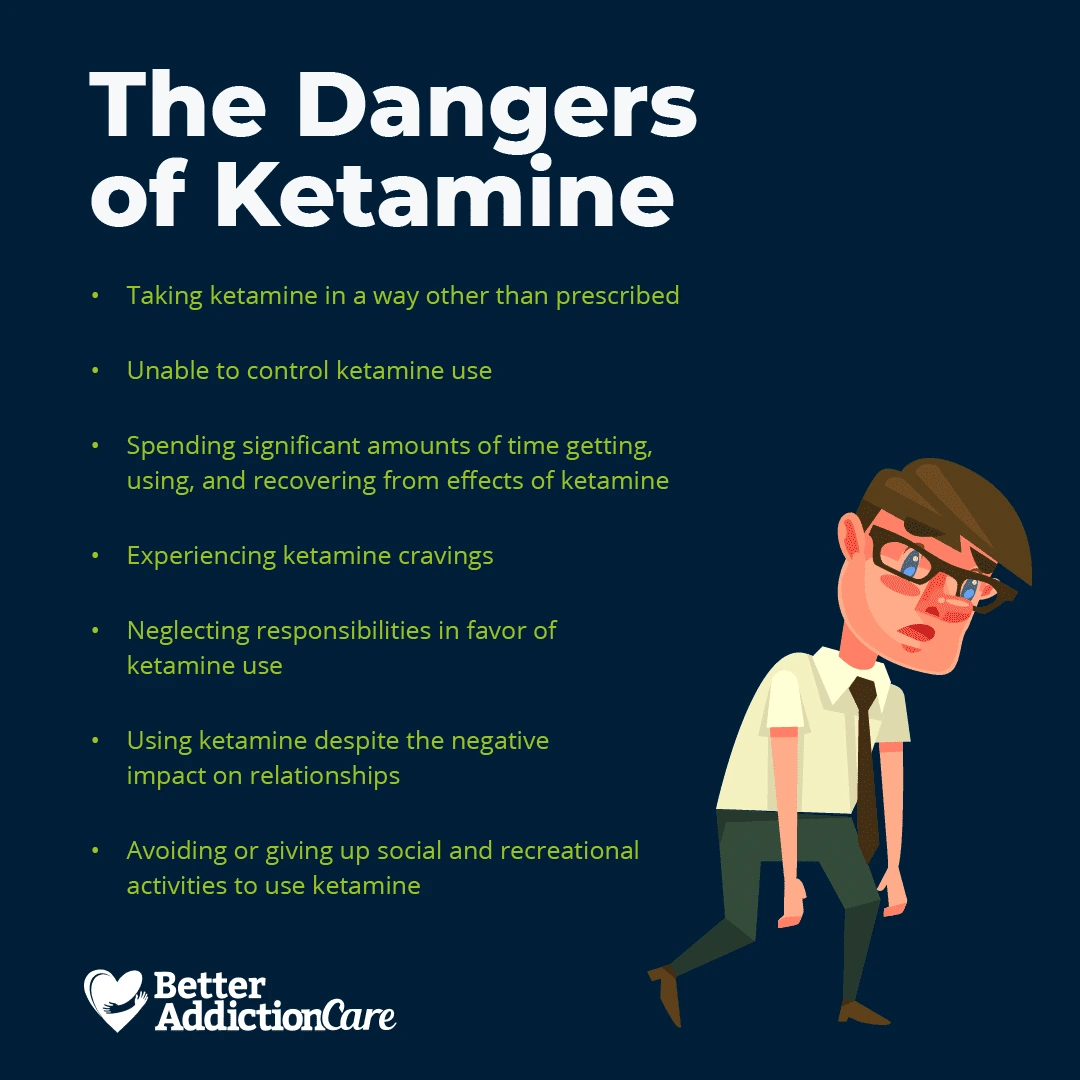
According to the Diagnostic and Statistical Manual of Mental Disorders, Fifth Edition (DSM-5), a person with a ketamine addiction will exhibit at least two of the criteria listed here in the span of 12 months:4
- Taking ketamine in a way other than prescribed
- Unable to control ketamine use
- Spending significant amounts of time getting, using, and recovering from effects of ketamine
- Experiencing ketamine cravings
- Neglecting responsibilities in favor of ketamine use
- Using ketamine despite the negative impact on relationships
- Avoiding or giving up social and recreational activities to use ketamine
- Recognizing there is a problem, but continuing to use anyway
- Experiencing tolerance to the effects of ketamine
- Experiencing withdrawal symptoms when you abruptly quit using ketamine
Who is at Risk of an Addiction?
Ketamine addiction is a chronic condition characterized by compulsive drug seeking and use behaviors despite harmful consequences. An addiction to ketamine involves functional alterations to neuronal circuits that process stress, reward, and self-control, which may last even after someone has stopped using the drug.5 While anyone who tries ketamine may be at risk of developing an addiction, there are certain risk factors that increase the chance of becoming addicted to ketamine.
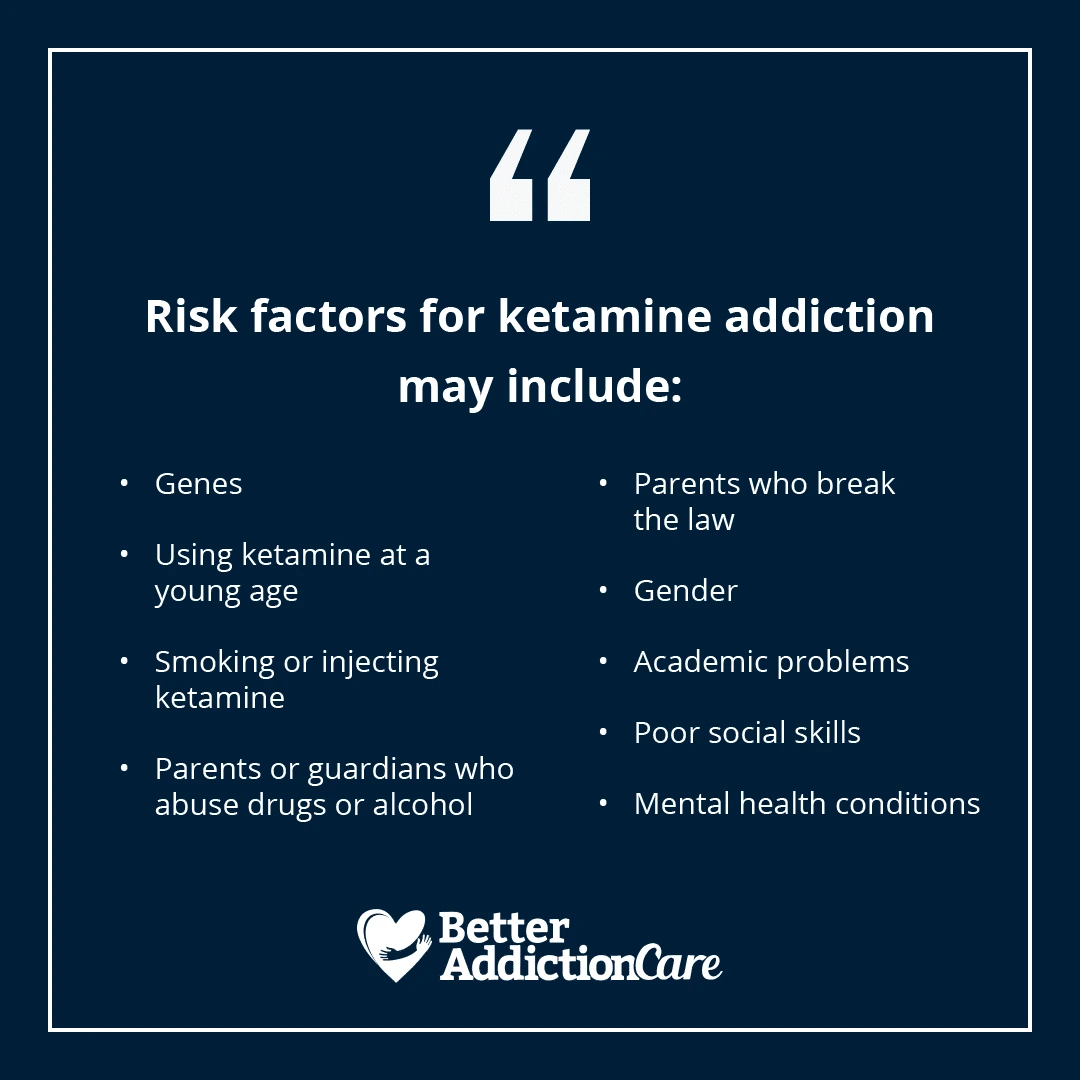
Risk factors for ketamine addiction may include:5
- Genes
- Using ketamine at a young age
- Smoking or injecting ketamine
- Parents or guardians who abuse drugs or alcohol
- Parents who break the law
- Gender
- Academic problems
- Poor social skills
- Mental health conditions
Scientists estimate that genes account for between 40%-60% of an individual’s risk for addiction to ketamine or other drugs.5
How to Treat Ketamine Addiction
If you or someone you love struggles with ketamine addiction, the first thing you should do is seek out a ketamine detox program that can help you safely withdraw from this drug. While detox is not a substitute for rehab, it is the first step on the continuum of care.
Inpatient and outpatient levels of ketamine addiction treatment are available. Inpatient programs are more intensive, while outpatient programs vary depending on the level of treatment you seek.
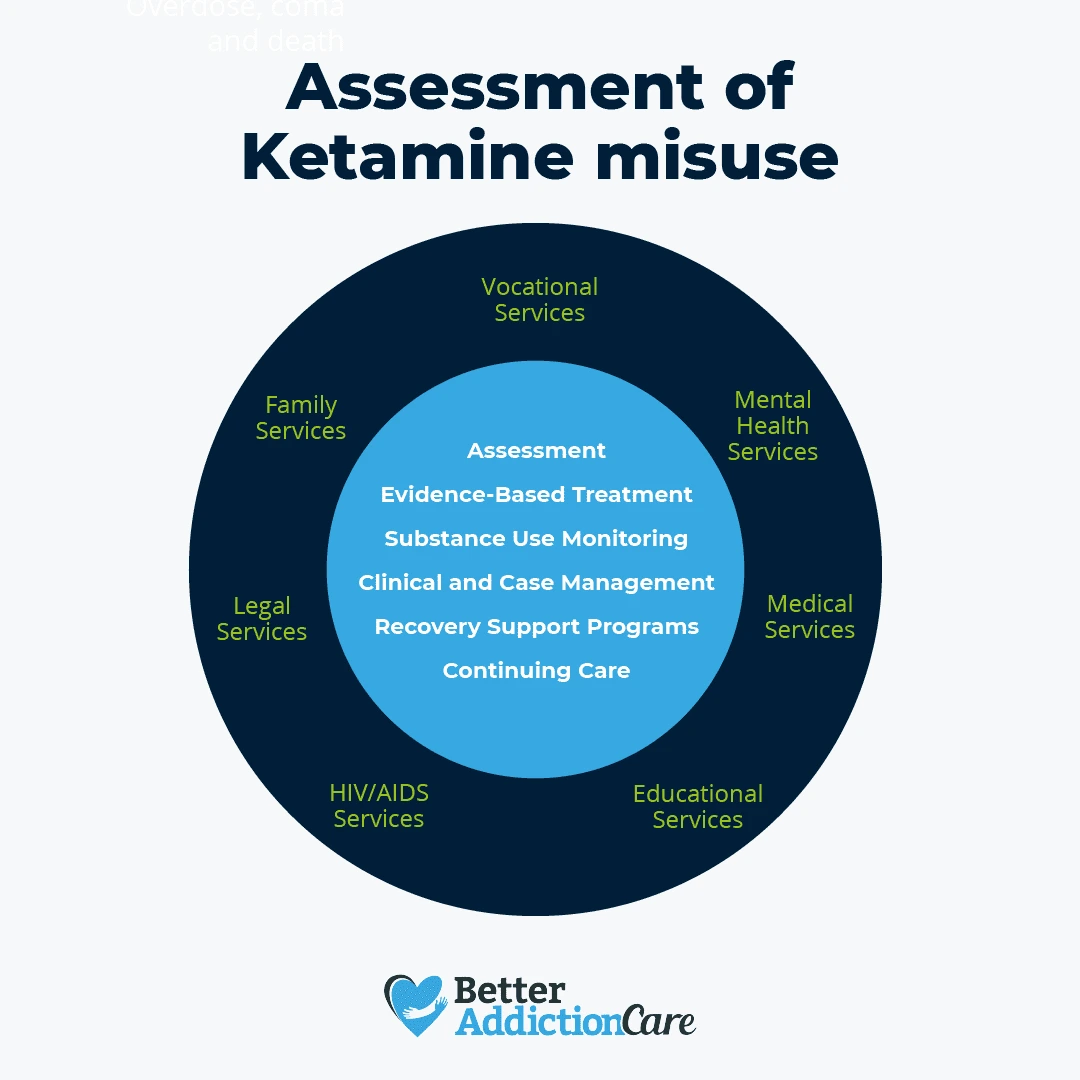
- Partial hospitalization may be part of your treatment plan. This treatment setting offers patients the opportunity to participate in treatment 4-6 hours per day, at least 5 days a week while remaining at home.
- Intensive outpatient treatment involves meeting for at least 3 hours a day for a minimum of two days per week.
- Standard outpatient treatment is the least intensive option and involves meeting once or twice per week for an hour or two.6 This option is best if you have a strong support system at home and are highly motivated to quit using ketamine.
- Inpatient treatment programs often will be strict and involve a structured, around-the-clock curriculum. Treatment planning for inpatient care must be tailored to your needs to be completely effective. Ongoing care is also necessary if you are seeking long-term recovery from ketamine addiction.
According to the National Institute of Health, an estimated 10% of American adults struggle with a substance use disorder (SUD) during their lifetime. More than 75% report not receiving any form of addiction treatment.8 If you or someone you know has a ketamine addiction, treatment is available and easily accessible. Most ketamine rehab programs accept a wide range of insurance plans, and if you don’t have insurance, many offer sliding scale fees or payment plans to help ease the cost of treatment.
If you aren’t sure where to start when looking for a treatment program that best suits your needs, give our helpline a call at 1-800-429-7690. One of our rehab support specialists can help you find the right program for you.
Aftercare and Ongoing Support
Once you have completed a ketamine addiction treatment program, you will need ongoing care and support in your recovery. These relapse prevention options help you build upon the sober foundation you began in treatment. They also provide you with support and guidance as you transition back into your everyday life, which may include stressors and drug-using triggers. Aftercare for ketamine addiction may include:
- 12-Step programs, like Narcotics Anonymous (NA)
- Step-down care in the form of outpatient treatment
- Group therapy
- Sober living homes
- Behavioral counseling
- Psychotherapy
- Mental health treatment
